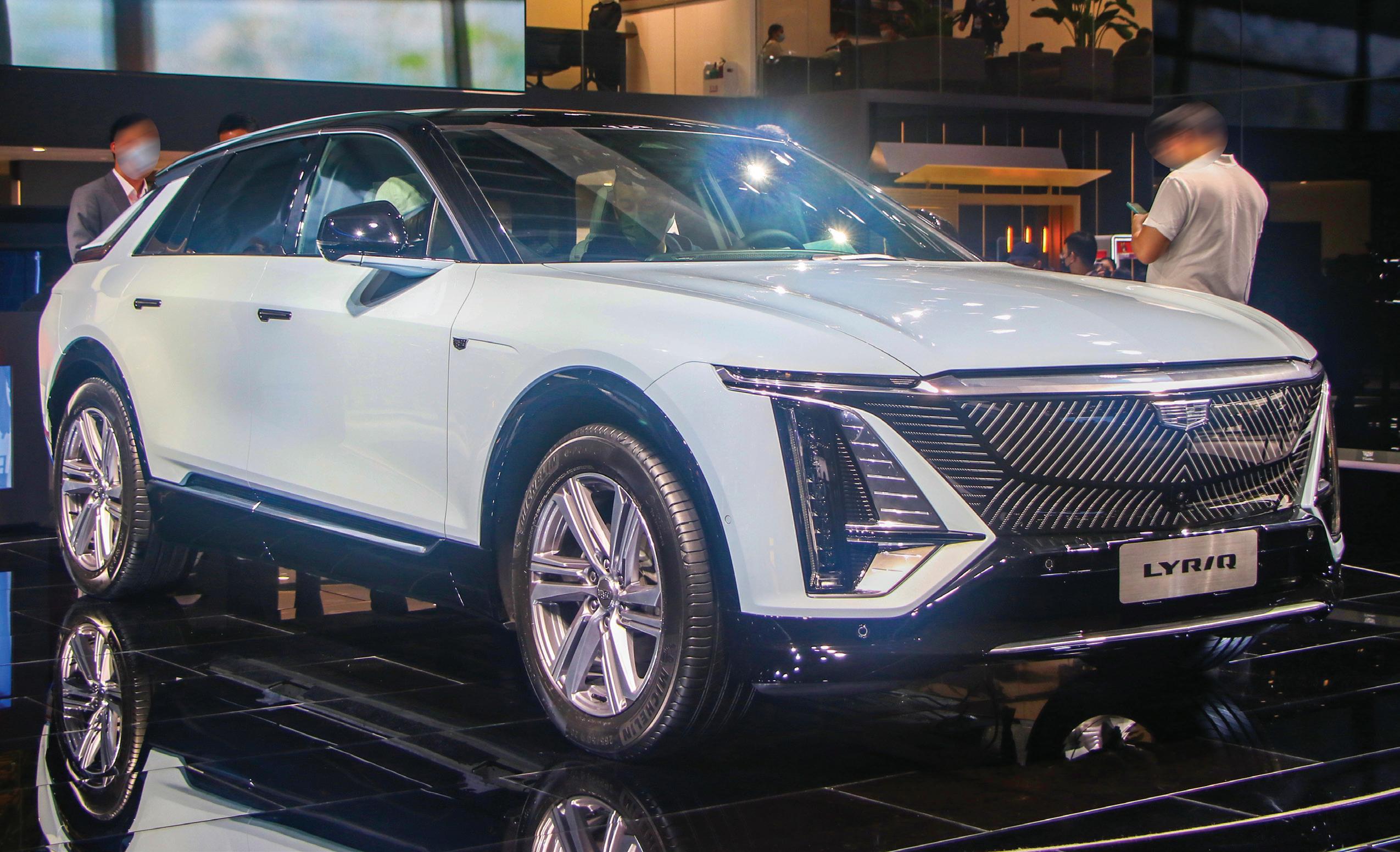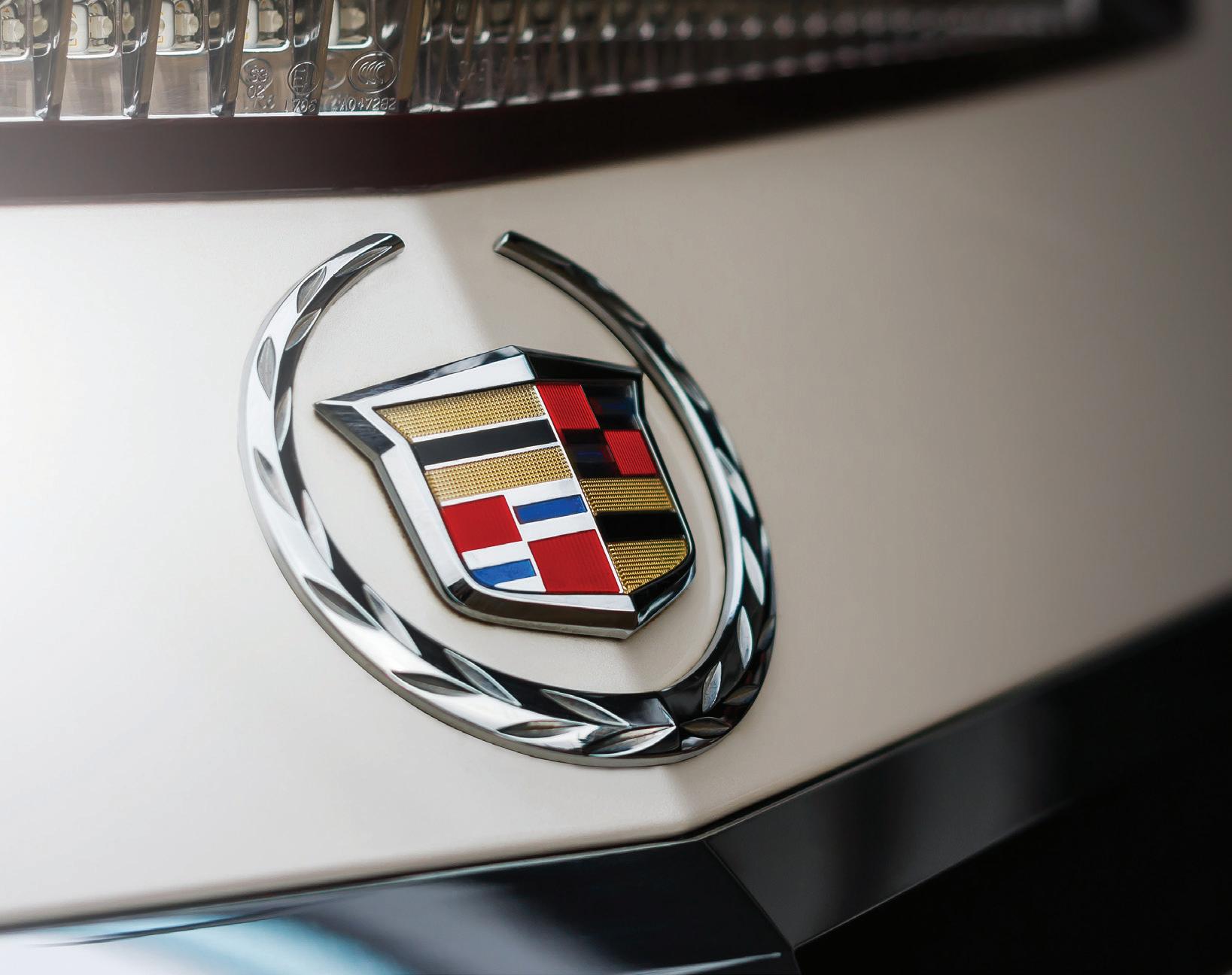
3 minute read
AUTOMOTIVE OUTLOOK
By Lawrence Makagon
Waiting on Your Lyric
If you’ve got $77,000 to spend on a luxury-type car, then you might want to try the (electric) Cadillac Lyriq.
You may have to wait a while, as people with ready cash have recently been obliged to do. GM is trying its best to get its production ramped up to put together all the Lyrics its customers put deposits on almost two years ago. A thousand people did this in the space of ten minutes. Problems came to greet GM: a slow start at the Ultium plant in Lordstown and software issues saw a mere 122 deliveries of the SUV emanate from last year’s Q4 production and fewer than 1,000 in 2023’s Q1.
Frustration set in, so naturally, the news couldn’t be kept off social media, and everybody was complaining in unison. What’s going on? What can we do? Well, some continued reservations were canceled, while some wannabe Caddy owners just waited and grumbled.
The good news is that 80% of the would-be Lyriq customers have never owned a Cadillac. Those who got theirs extoll its virtues. And it’s not uncommon for automakers to have problems getting new EVs off the ground, viz Tesla, Toyota, and Ford. And GM is reportedly offering financial encouragement to those who will have to wait too long to keep them on board. The executive who owned a Merc GLC-300 said he’d never considered a Cadillac before, but he thinks the Lyriq is more luxurious than the Tesla, and he likes the styling.

Moving down to China, this country’s Geely company has acquired a reputation for fixing up European autos in “need of repair.” The company bought Volvo from Ford in 2010, apparently got a good deal, and had it running better than ever within a few years. It bought Lotus in 2017, 50% of Smart from Daimler in 2020, and is now completely reengineering it. But before most of this, it rescued the maker of London’s black cabs after its parent company went into administration. But this one didn’t turn around quite like the others. Reborn as London Electric Vehicle Company in 2017, Geely put in over £500 million and set up a new global headquarters and the UK’s first dedicated EV manufacturing plant. The facility in Coventry has the ability to produce up to 20,000 vehicles per year, with the potential to boost this by another 80% with minor adjustments.
But LEVC is quite a way from using all this capacity, having produced only its 10,000th car in March, over five years after shipping its first electric taxi. With all that’s happened in the past five years, the pandemic, Uber, etc., and all the supply-chain problems, the taxi trade didn’t fare well.
But the company’s not lying down. It’s come up with what it calls an all-electric platform that will broaden its product range beyond the black cab. LEVC has been in R&D labs in China, Sweden, the UK, and Germany, developing a range of “people-movers” and delivery vehicles. But after all the ideas that came out of the labs, it’s still not clear where all this will go. Fully electric taxis, for example, will need to wait until the UK has a better charging infrastructure. So LEVC is a long way from rivaling Volvo, Polestar, and Lotus Technology as an example of what Geely can do.
Not an EV, but a lower-priced gasoline-powered SUV, priced at the lower end of the market, China’s Chery is selling a mid-sized
Onoda 5 in Australia for as little as A$32,000 ($22,000) for a base model. Bloomberg’s down-under correspondent drove a high-end version around Sydney for four days, a car full of luxury car extras that cost not much more than A$35,000. The best-selling car in Australia, Ford’s Ranger pickup, can go for double that price. The man in Oz said the car he tried scored well, apart from all-round vision, which he described as “unmemorable.”
Taken all round, the car was “worth a drive.” More Chery models are on the cards for sale in Australia later this year. Sales of China-sourced vehicles in Australia are up 69% this year. Overall, EV sales increased to 8% this year from 1.1% last year. The jury will be out for a while on Chinese automobiles, pending their overall satisfaction rating.
Lawrence Makagon, Staff Writer


